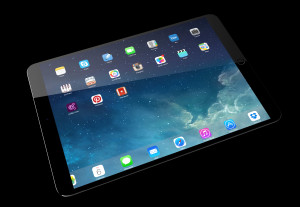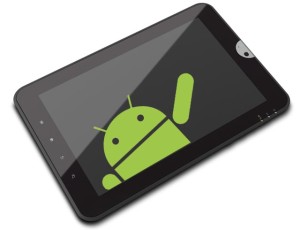Which tablet is better?
Neither and both.
With the recent buzz around Apple’s recent announcements, which devices ARE better?
Well, what is our measurement criteria? How are we measuring?
I frequently review product commentaries, and realize that I am relying on data supplied by people that don’t necessarily share the same usage patterns or requirements. For example, I have been working with a student. Their requirements were focused on battery life, screen size, application availability, note taking, speed/performance and accessories (external keyboard). I had a different client who was focused on using their device as a “tablet” for displaying marketing materials, and email processing.
Each person has a slightly different set of needs, which are developed based on their individual use cases (e.g. school vs. traveling).
So what to do?
Best thing to do is-
- Determine what you will do with a device. Will you read eBooks or play games? Take notes or watch videos?
- Read reviews, but only pay attention to the items that are important to you. For example an ecosystem for games or battery life or device expansion may not be important. If a reader complains around packaging, then consider it, but, this may not be a show stopper for you. Don’t get caught up in rhetoric and opinions, but try to pay close attention to facts that are important to you.
- Go to a brick and mortar store and touch a device. Test sensitivity to your touch and your comfort. Weight, thickness, position of buttons, etc. There is nothing worse that purchasing a product for an intended purpose, and then finding out it is much to small/large or too heavy. Very frustrating.
- Before entering your credit card number or final payment, make sure you know your rights around returns. Open box fees or credit only. Maybe you can test it, and if dissatisfied, return for a full refund?
- Sometimes during final purchase processing, the “insurance” question will come up. Again, this is a personal question, but it does depend upon your intended use case, and purchase price.
So, which should I buy?
My use case is heavy note taking, reading, email, internet browsing, podcasts, and some video playback – all on wireless. Bluetooth is disabled.
Personally, I found that my Apple Ipad has served me beyond my expectations. For my use cases, my battery life is pretty good. Usage of a few hours per day – requires approximately a full charge 1x a week. The downside to the full charge is that it takes ~1-2 hours to complete.
Responsive, and very successful upgrades, because Apple products are supported for awhile (4-5 years from issue)
https://discussions.apple.com/thread/250596052
I did have a problem with my wireless, which was finally rectified by using a different access point (from ISP). The wireless router was using an older software/firmware, and apparently there were some incompatibilities. I was able to negotiate a connection, but after a few minutes, my device was asked to verify the key exchange, and it failed. This proved frustrating. In defense of Apple, I didn’t attempt a fresh reload, backup/wipe/restore.
A positive feature of some of the Apple ecosystem, is the uniformity of the interfaces, as well as Apple’s attempt to keep you in their family by allowing trade-ins towards the purchase of a newer/upgraded product. This solves an environmental dilemma, but, also keeps you in the family.
Comparably, any of the Samsung devises would have sufficed, leaving additional cash in my pocket to support additional future expansion requirements. I could have also achieved a faster cpu, at the cost of aesthetics and battery life, but at the time, the Android market wasn’t flooded with products, the Android store was not as organized and applications numbers were lower. This has since changed, and basically puts both product categories in direct competition and even footing.
Most Android products will only have a serviceable life of 3-4 years. This is not dependent on the quality of the product, but more dependent on the hardware manufacturers life cycle for support. After a period of time the hardware may work fine, but manufacturers will choose to “age out” older gear. This is specifically true in the case of cellular carriers. Basically the carriers have too many permutations in their test cases. This is mainly the case in OS upgrades. From a hardware perspective, batteries will begin to degrade, based on use and charge/discharge cycles, along with the usual wear and tear.
Finally, both device types are going to provide positive results, and bring the user many hours of happiness, and hopefully, minimal disappointment.
In my opinion, the Apple product had an edge, but today, both Apple and Android platforms are on relatively equal footing. Again, both Apple and Android enthusiasts can argue multiple points with validity, but, ultimately, the “right fit” for any one person depends on THEIR use cases, history, budget, as well as additional factors.

